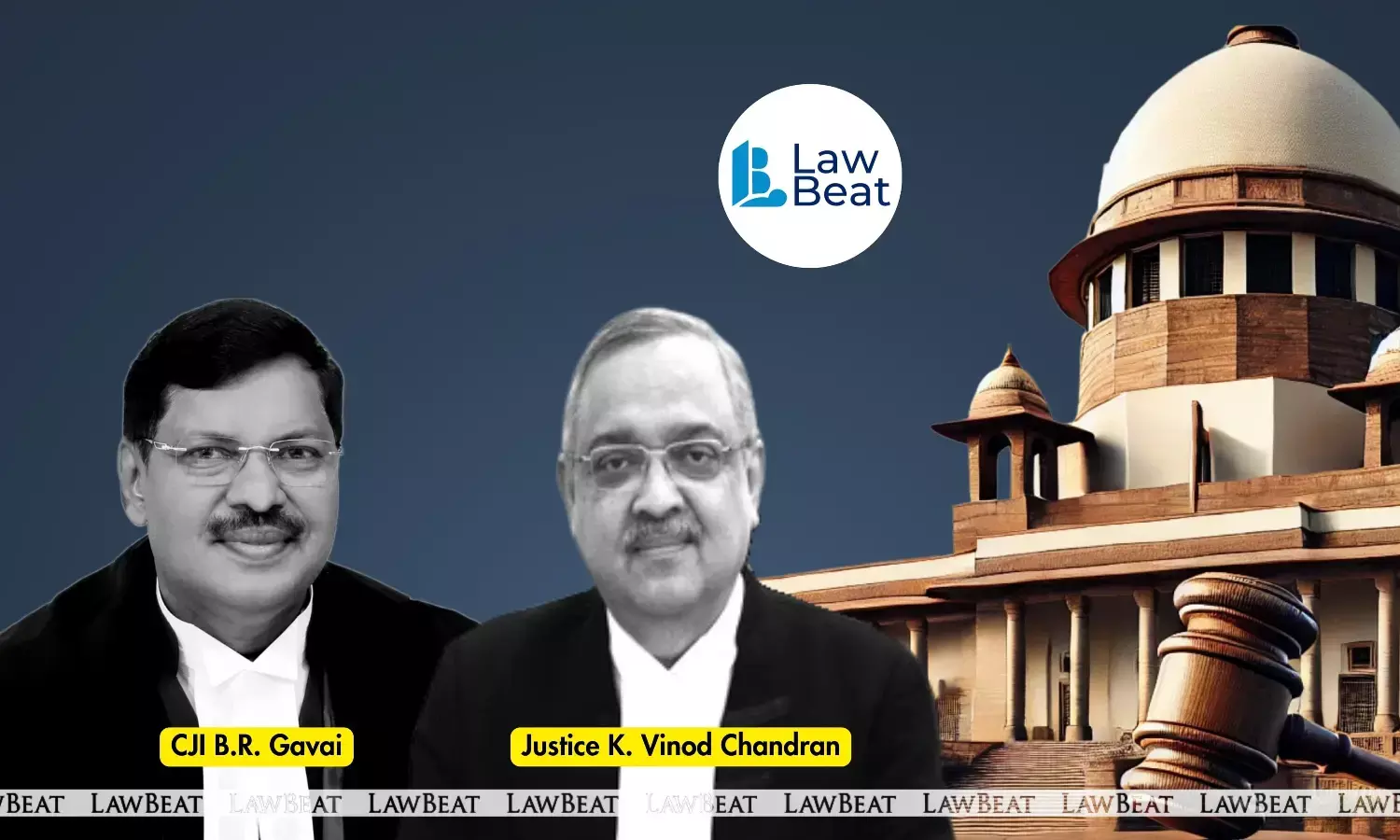SC Rejects Plea to Club FIRs in Investor Fraud Case

SC rejects "overambitious" plea to club multiple FIRs in investor defalcation cases across seven states
The Supreme Court on September 26, 2025, rejected a plea seeking the clubbing of multiple First Information Reports (FIRs), both filed and to be filed in various states, against directors and others of a company accused of defalcation of money received from investors.
A bench comprising Chief Justice of India B R Gavai and K Vinod Chandran characterized the prayer for clubbing FIRs from various States, and particularly future FIRs, as "overambitious and outright illegal".
The bench emphatically stated, "The prayer regarding future FIRs is one which cannot be granted by any court of law."
The bench observed that while the modus operandi of the crime may be the same, the essential facts of the cases are different.
"The individual crime proper has ramifications which are unique in each such transactions and also involves offences under the enactments in the different States; brought in to ensure protection of investors and depositors in financial institutions," the bench held.
Specifically, court noted that insofar as the State of Telangana is concerned, the offences alleged would also include those under the Telangana Protection of Depositors of Financial Establishments Act, 1999.
Court further noted that crimes were registered in the States of Karnataka, Maharashtra, West Bengal, Delhi, Andhra Pradesh, and Rajasthan, in addition to Telangana. Multiple FIRs within a single State were noted only in Telangana, where four FIRs were registered, and Maharashtra, where two FIRs were registered.
The petitioners had submitted that multiple FIRs were lodged on the very same cause of action and that the investigation and prosecution should be brought under one roof, which could be enabled by clubbing all the FIRs to a single Police Station where the first crime was registered. They cited the cases of Amish Devgan Vs Union of India and Others (2021) and T T Antony Vs State of Kerala and Others (2001).
The bench distinguished the Amish Devgan case, noting that the offence there was singular, concerning an alleged objectionable statement leading to the hurting of religious sentiments telecast in a television show. This, the bench said, stood distinct from the instant case, where FIRs were registered on the complaints of investors and depositors who were alleged to have been duped by the firm diverting the funds, leading to the loss of their life’s savings.
The bench held, "We cannot forget that after investigation if a charge sheet is filed, the trial will have to be proceeded with, producing witnesses, being the investors of depositors, from the various locations. In which event the clubbing of FIRs from all the States would not be practical".
Court also noted Section 242 of the Bharathiya Nagarik Suraksha Sanhitha, 2023, which enables offences of the same kind committed within a year to be charged together. It specified that Section 242 provides that when a person is accused of more offences than one, of the same kind, committed within the space of twelve months, from the first to the last of such offences, whether in respect of the same person or not, he may be charged with, and tried at one trial for any number of them not exceeding five.
Despite rejecting the general plea for clubbing across states, court did issue specific transfer orders within two states. Court noted that in Telangana, there were 4 crimes registered: three by the Economic Offences Wing, Cyberabad, and one in Madhapur, Cyberabad. The bench, therefore, ordered, "Hence the FIR registered in Madhapur, Cyberabad will stand transferred to Economic Offences Wing, Cyberabad".
Similarly, in the State of Maharashtra, where two FIRs were registered, one in Ambazari, Nagpur City, and the other in Wagle Estate, Thane City, the court ordered that FIR 210 of 2025 registered in Wagle Estate, Thane City, will be transferred to Ambazari, Nagpur City. The plea for clubbing the single FIRs filed in the States of Karnataka, West Bengal, Delhi, Andhra Pradesh, and Rajasthan was rejected.
The bench also issued a direction regarding costs, clarifying, "It is made clear that if and when the trial commences, witnesses from the prosecution, if travelling from the police station limits in which the FIR was originally registered to the court having jurisdiction over the Police Station to which it has been transferred by this order, then necessarily the court trying the case shall award costs to defray the expenses of travel and residence."
The bench further clarified that if residence is necessitated for the purpose of examination of the witnesses, the court would be paid by the accused herein through the court.
Furthermore, court ordered that those petitioners who have been languishing in jail for months together would be released on bail, subject to them cooperating in the investigation.
It directed them to appear before the jurisdictional court within six months and seek regular bail. Till then, the production warrants issued against them should not be acted upon.
The bench emphasised, "This order granting protection from coercive steps to those who are released on bail and those against whom warrants are pending shall be only in force for the six-month period stipulated herein, within which time the petitioners will approach the jurisdictional courts and if not, the police would be entitled to proceed in accordance with law".
Case Title: Odela Satyam & Anr Vs The State of Telangana & Ors
Judgment Date: September 26, 2026
Bench: Chief Justice of India B R Gavai and K Vinod Chandran
